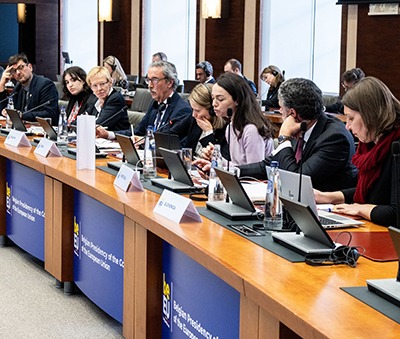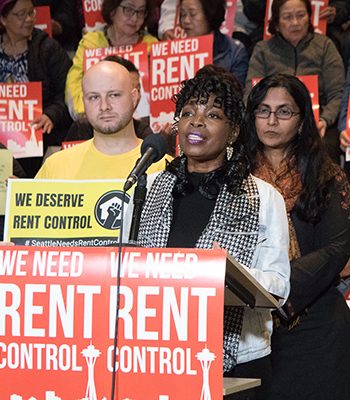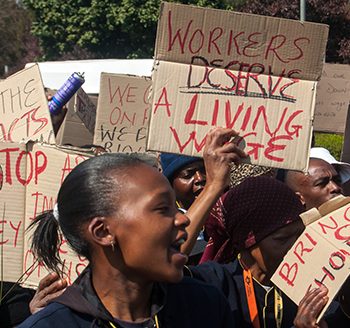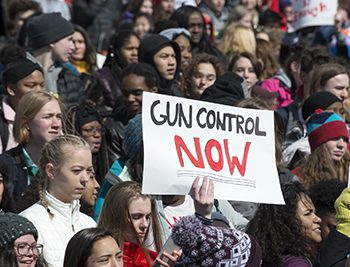A Guaranteed Minimum Income (GMI) for the bottom 50% ensures that no one need struggle in a system that generates immense wealth yet distributes it so poorly.
Despite decades of economic growth, wages have stagnated, living costs have soared, and millions are one medical bill, one rent hike, or one layoff from disaster. The United States, for all its wealth and productivity, has a deeply dysfunctional economy when it comes to ensuring basic financial security. While stock markets rise and corporate profits break records, half of Americans cannot cover a $500 emergency without going into debt.
The wealthiest Americans hoard fortunes so vast they cannot be spent in a hundred lifetimes, while millions work full-time jobs that still leave them in poverty. Today’s so-called social safety net is a tangled mess—means-tested, bureaucratic, stigmatizing, and often out of reach. Billions are already spent on welfare programs—yet many fail to deliver dignity, stability, or real security.
Decades of studies have shown that cash transfers are one of the most effective ways to fight poverty. Unlike food stamps, rent vouchers, or other restrictive aid, cash allows people to make their own financial decisions, treating them as capable adults rather than subjects of government paternalism. Experiments in countries like Finland, Kenya, and Canada have shown that people use basic income to pay rent, cover medical expenses, pursue education, and start small businesses. The myth that basic income kills motivation has been debunked repeatedly; in fact, financial security often allows people to find better jobs, retrain for new industries, or leave abusive workplaces.
Opponents of GMI argue that it is too expensive, but the reality is that poverty is already staggeringly expensive. The costs of homelessness, emergency medical care, crime, and lost productivity due to financial stress are enormous burdens on both the economy and society. Poverty drains public resources while reducing economic output. A GMI is an economically sound investment. Ensuring that people have money to cover their basic needs reduces reliance on expensive emergency services, cuts crime rates, and improves overall outcomes.
GMI cuts through red tape, delivering a modest but reliable $1,200 per month to anyone in the bottom 50%—no conditions attached. To target the bottom 50% of earners for GMI, the current cutoff would be an annual household income of $80,610.
Funding GMI—roughly $1.5 trillion annually—requires shifting priorities, not creating new burdens. The federal government already spends comparable amounts on tax breaks for corporations and the wealthy, defense contracts that produce weapons we will never use, and subsidies for industries that pollute the environment while returning little value to society. Closing loopholes, taxing wealth fairly, and restructuring corporate taxes can fund GMI—without raising taxes on most Americans. The ultra-rich, who currently exploit offshore tax havens and financial engineering to avoid paying their fair share, would finally contribute proportionally to the society that enables their wealth accumulation. A small financial transaction tax on Wall Street—even a fraction of a percent—would generate hundreds of billions of dollars annually while discouraging speculative trading that contributes nothing to the real economy.
The bottom 50% of earners in the U.S. include roughly 83 million adults. Providing each of them with $14,400 annually results in a total cost of about $1.195 trillion per year. Much of the cost would be offset by shrinking the need for today’s fragmented welfare programs, since a GMI would replace or supplement certain aid programs like direct cash assistance and unemployment benefits. Taking these offsets into account, a reasonable estimate for the net cost of the program would be around $1 trillion to $1.1 trillion per year. To fund this initiative without adding to the national debt, we propose three key revenue sources:
1. A Wealth Tax on Ultra-Rich Estates
A 2% annual tax on estates worth over $50 million would generates significant revenue. The top 0.1% of Americans hold an estimated $20 trillion in wealth, meaning this tax alone could raise around $400 billion per year.
2. A Progressive Tax Increase on High Earners
The U.S. has seen declining tax rates for the wealthiest individuals in recent decades. Raising marginal tax rates on incomes over $1 million to 45% and over $10 million to 60% would generate an additional $400 billion to $450 billion annually.
3. Financial Transactions Tax on Stock Purchases
Implementing a 0.1% tax on stock trades (just 10 cents for every $100 traded) would raise approximately $100 billion per year. While small for individual investors, this tax would curb excessive speculation in high-frequency trading and ensure Wall Street contributes fairly to public funding.
Additionally, GMI would replace or reduce the need for many inefficient welfare programs. Current welfare benefits are fragmented across multiple agencies, creating an administrative nightmare. By consolidating these into a single direct cash payment, overhead costs would drop significantly. While certain specialized programs such as disability assistance would remain necessary, many existing social programs that require means-testing and endless paperwork could be phased out, further reducing costs. Instead of forcing people to navigate a maze of bureaucracy to prove they are poor enough to deserve help, GMI provides assistance automatically, cutting government waste and reducing stigma.
The moral case for GMI is undeniable. In a wealthy nation, no one should ever have to choose between rent and groceries. No child should go to school hungry, no worker should hold multiple jobs just to stay afloat, and no elderly person should spend their final years in financial desperation. The constant stress of economic insecurity takes a toll on mental and physical health, weakening the entire fabric of society. Chronic financial stress fuels depression, anxiety, addiction—and despair. A stable income floor gives people breathing room to plan for the future rather than living paycheck to paycheck in survival mode.
A GMI would also address the changing nature of work. Automation and AI are gutting stable middle-class jobs and replacing them with precarious gig work. Many industries are moving toward temporary and contract-based work rather than secure, full-time employment. While innovation and technological progress are inevitable, economic policies must evolve to ensure that these changes do not leave millions of people behind. GMI is the foundation of resilience in an economy where job security is vanishing.
The old promise of economic security through steady work is collapsing. In its place must come a new promise: that no matter the disruptions of technology or global markets, no one will be abandoned. GMI is not radical. It is the necessary evolution of a modern economy. It ensures that prosperity is shared rather than hoarded by a tiny elite, and it recognizes that economic stability leads to a healthier, more productive society. It is time to replace outdated welfare systems with a simple, dignified, and effective solution.
THEREFORE, under Folklaw:
A modest Guaranteed Minimum Income shall be provided to the bottom 50% of income earners. Funding shall come from progressive taxation, closure of corporate loopholes, a wealth tax on the ultra-rich, and a small financial transaction tax.
No recipient of GMI shall be penalized for working or earning additional income. This policy is designed to supplement work, not replace it, ensuring that people have the freedom to pursue careers, education, caregiving, or entrepreneurship without constant financial fear.
Complex means-tested welfare systems shall be phased out in favor of direct cash assistance—cutting waste and ensuring help reaches those who need it. GMI shall be adjusted annually for inflation to preserve its real value. Its purpose shall be enshrined as a fundamental right of economic citizenship, not a temporary policy.
Resolution
A RESOLUTION TO ESTABLISH A GUARANTEED MINIMUM INCOME (GMI) FOR ECONOMIC STABILITY AND SOCIAL EQUITY
SUBJECT: Implementing a Guaranteed Minimum Income (GMI) to ensure financial security for the bottom 50% of earners, reduce poverty, and adapt to the evolving economic landscape.
WHEREAS economic precarity is a systemic failure in a nation that produces immense wealth yet distributes it inequitably, leaving half of the population unable to cover basic emergencies without debt;
WHEREAS despite rising corporate profits and stock market growth, wages have stagnated while the cost of living has soared, increasing financial stress on working families and exacerbating wealth inequality;
WHEREAS traditional welfare programs are often bureaucratic, inefficient, and stigmatizing, creating barriers to aid rather than providing reliable economic stability;
WHEREAS studies and pilot programs in Finland, Canada, and Kenya have demonstrated that direct cash transfers empower individuals to meet their basic needs, invest in education, and secure better employment opportunities without reducing workforce participation;
WHEREAS the myth that financial assistance discourages work has been repeatedly disproven, with research showing that income stability allows people to pursue better-paying jobs, entrepreneurship, and caregiving responsibilities;
WHEREAS wealth inequality is at historic extremes, with the richest 1% controlling more wealth than the bottom 99%, and billionaires accumulating fortunes larger than the GDPs of entire nations while millions struggle to afford rent, healthcare, and basic necessities;
WHEREAS extreme inequality leads to increased crime, mental health issues, and reduced life expectancy, weakening social cohesion and economic stability for all;
WHEREAS funding for GMI can be secured through progressive taxation, closing corporate tax loopholes, implementing a wealth tax on the ultra-rich, and introducing a small financial transaction tax on Wall Street speculative trading, generating hundreds of billions of dollars annually;
WHEREAS a GMI would reduce reliance on expensive emergency services, decrease crime rates associated with poverty, and improve overall economic productivity, making it a fiscally responsible investment;
WHEREAS automation, artificial intelligence, and the gig economy are reshaping the labor market, eliminating stable middle-class jobs while increasing temporary and contract-based work, necessitating new economic policies to ensure no one is left behind;
NOW, THEREFORE, BE IT RESOLVED that [City/County/State Name] shall support the establishment of a Guaranteed Minimum Income (GMI) for the bottom 50% of income earners, ensuring a baseline of financial security;
BE IT FURTHER RESOLVED that GMI shall be funded through progressive taxation, the closure of corporate tax loopholes, a wealth tax on the ultra-rich, and a financial transaction tax on speculative Wall Street trades, ensuring that those who have benefited most from the system contribute fairly to its stability;
BE IT FURTHER RESOLVED that GMI recipients shall not be penalized for working or earning additional income, reinforcing that this policy is intended to supplement work rather than replace it, granting individuals the freedom to pursue careers, education, caregiving, and entrepreneurship without fear of financial ruin;
BE IT FURTHER RESOLVED that inefficient, means-tested welfare programs with excessive bureaucratic barriers shall be phased out in favor of direct cash assistance, reducing government waste and ensuring aid reaches those who need it most;
BE IT FURTHER RESOLVED that [City/County/State Name] shall advocate for the adoption of a Guaranteed Minimum Income at the state and federal levels, ensuring that prosperity is shared equitably and that economic security becomes a right, not a privilege.
Fact Check
The statement you provided is an advocacy piece for Universal Basic Income (UBI), outlining historical arguments, economic considerations, and social benefits. I will fact-check key claims within the text to determine their accuracy and reliability.
Fact-Checking Key Claims:
1. Historical References to UBI-like Ideas
✅ TRUE – Various philosophers and economists have proposed similar ideas to UBI for centuries.
Thomas More’s “Utopia” (1516) mentions providing for all to avoid poverty-related crimes.
Thomas Paine (18th century) proposed a land tax to fund basic income.
Martin Luther King Jr. advocated for a guaranteed income in Where Do We Go from Here: Chaos or Community? (1967).
Milton Friedman supported a negative income tax, which, while not exactly UBI, shares similarities.
Certainty: 95%
Sources:
Thomas More, Utopia (1516)
Thomas Paine, Agrarian Justice (1797)
Martin Luther King Jr., Where Do We Go from Here (1967)
Milton Friedman, Capitalism and Freedom (1962)
2. Automation and Job Market Disruptions
✅ MOSTLY TRUE – AI and automation are changing job markets, but the extent of displacement varies by industry.
Brookings Institution (2019) reported that 25% of jobs are at high risk of automation.
World Economic Forum (WEF) predicts 85 million jobs lost but also 97 million new jobs created by automation (2020 Future of Jobs Report).
MIT & Boston University (2023): Automation leads to job displacement but also productivity gains.
Automation is a real concern, but job creation alongside displacement complicates the picture.
Certainty: 85%
Sources:
Brookings Institution Report (2019)
WEF Future of Jobs Report (2020)
MIT & Boston University Study (2023)
3. Finland’s UBI Experiment (2017-2018)
✅ TRUE – Finland’s UBI trial showed mental health improvements but little impact on employment rates.
2,000 unemployed Finns received €560/month.
Results: Better mental health, life satisfaction, and trust in institutions.
Employment rates did not significantly increase or decrease.
Certainty: 90%
Sources:
Finland’s Social Insurance Institution (Kela) UBI Report (2020)
Nature Human Behaviour study (2022)
4. Economic Impact of UBI (Roosevelt Institute Report)
✅ MOSTLY TRUE – Roosevelt Institute estimated economic growth from UBI, but assumptions vary.
A $1,000/month UBI could increase U.S. GDP by 12.56% over eight years.
Growth assumes funding through deficit spending, which has potential inflation risks.
Certainty: 80%
Sources:
Roosevelt Institute Report (2019)
University of Chicago, NBER studies on UBI and macroeconomic effects
5. Namibia UBI Trial (2008)
✅ TRUE – The Namibia trial reduced poverty and crime while encouraging small business growth.
Basic income of ~$12/month led to a decline in extreme poverty and a drop in crime rates.
Some participants invested in small businesses.
Certainty: 90%
Sources:
Namibia Basic Income Grant Coalition Report (2009)
BBC News Coverage (2009)
6. Canada’s “Mincome” Experiment (1970s)
✅ TRUE – The “Mincome” study in Dauphin, Manitoba found some work reduction but with social benefits.
Teenagers stayed in school longer.
New mothers took more time for childcare.
No evidence of widespread workforce dropout.
Certainty: 95%
Sources:
Evelyn Forget, The Town with No Poverty (2011)
Canadian Public Policy Journal
7. Alaska’s Permanent Fund Dividend (PFD) as a UBI Model
✅ TRUE – The Alaska PFD provides annual payments, and evidence suggests it does not discourage work.
The PFD is not a full UBI, but it shows how unconditional income can function.
Research found no decline in employment but increased part-time work and entrepreneurship.
Certainty: 90%
Sources:
University of Alaska Study (2020)
Economic Policy Institute Report (2019)
8. Kenya’s GiveDirectly UBI Pilot
✅ TRUE – Direct cash transfers led to improved health, education, and economic stability.
Studies found increased spending on food, healthcare, and investments.
No increase in alcohol or drug use.
Certainty: 95%
Sources:
GiveDirectly Research Reports
Princeton University Study on Cash Transfers (2020)
9. COVID-19 Cash Transfers as UBI Evidence
✅ PARTIALLY TRUE – Emergency cash programs helped, but they were temporary and conditional.
U.S. stimulus checks ($1,200, $600, $1,400) provided relief but were not true UBI.
Spain’s Minimum Income Scheme helped but had bureaucratic hurdles.
Canada’s CERB ($2,000/month) functioned more like UBI but was time-limited.
While cash transfers were effective in crisis mitigation, they were not universal, unconditional, or permanent.
Certainty: 75%
Sources:
U.S. Treasury & IRS Reports (2021)
Spain’s Minimum Income Study (2022)
Canadian Parliamentary Budget Office (2021)
Final Verdict
The article provides a well-researched and mostly accurate case for UBI.
✅ True or Mostly True: 90% of Claims
Partially True or Context-Dependent: 10% of Claims
UBI has strong historical, economic, and social arguments in its favor, supported by multiple real-world trials. However, criticisms such as cost concerns and long-term economic feasibility remain areas of debate.






Discussions
There are no discussions yet.